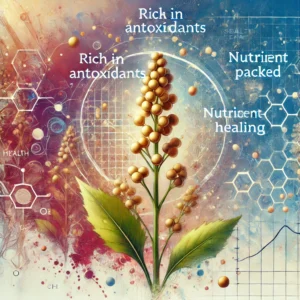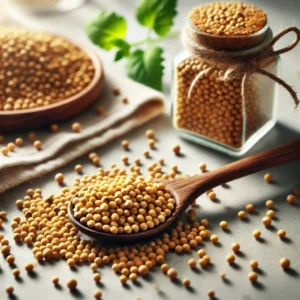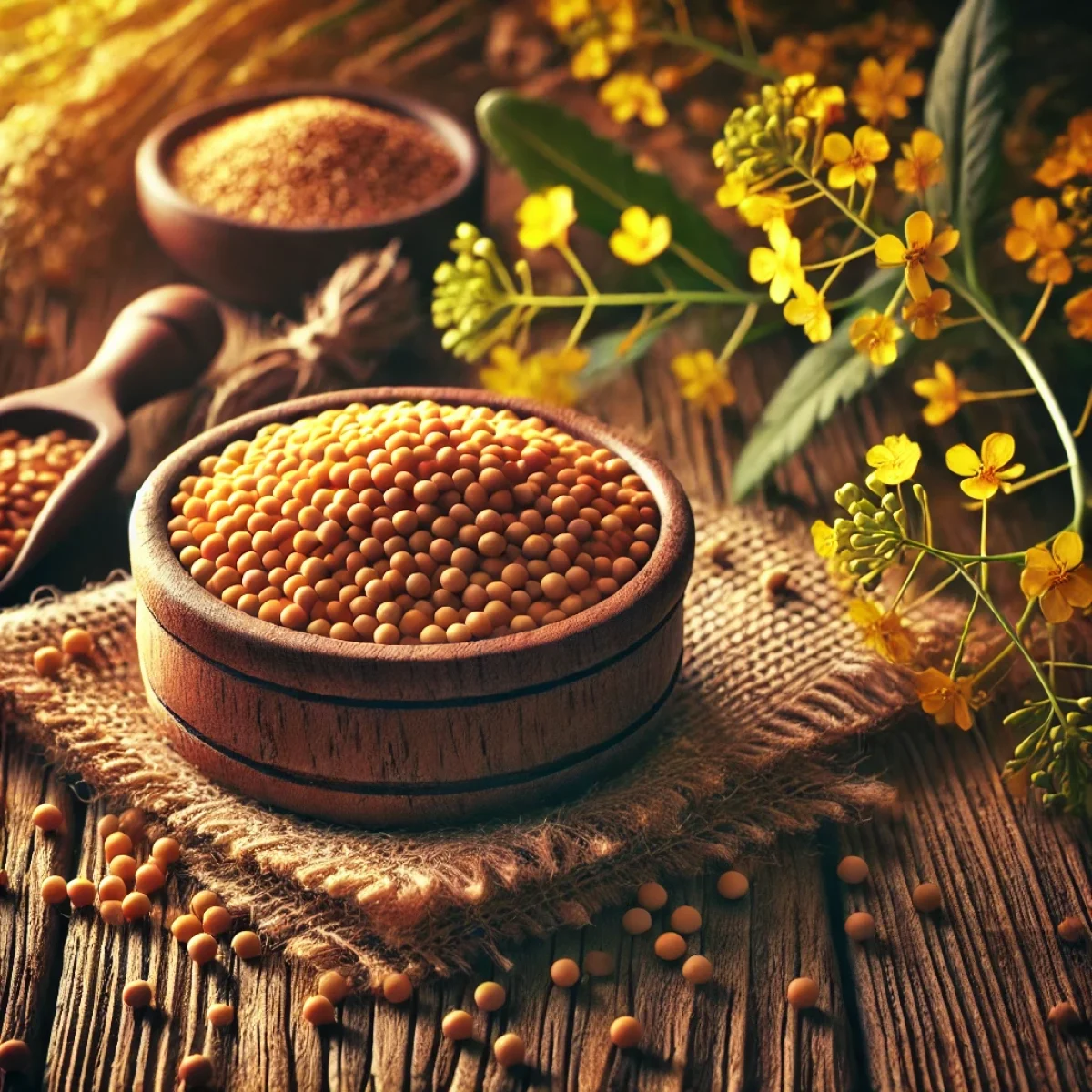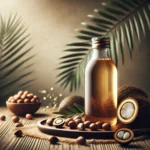Mustard seeds, derived from the mustard plant, are small but mighty when it comes to flavor and health benefits. Commonly used in Mediterranean and Asian cuisines, these seeds not only enhance dishes but also pack a punch of nutrients. As the trend toward organic and health-focused ingredients grows, mustard seeds are earning their spot as a versatile and essential ingredient. Read on to discover their origins, nutritional value, and amazing health benefits.
What Are Mustard Seeds and Where Do They Come From?
Mustard seeds are the tiny seeds of the mustard plant, a member of the cruciferous vegetable family, which includes cabbage, broccoli, and kale. Known for their medicinal properties and sharp, tangy flavor, mustard seeds have been celebrated for centuries in traditional and modern cuisines alike.
Mustard Plant Characteristics
The mustard plant has edible leaves and seeds, making it a versatile addition to your kitchen. Its nutritional value and medicinal benefits have been validated by both historical use and modern science.
Nutritional Value of Mustard Seeds

Mustard seeds are loaded with essential minerals, vitamins, and antioxidants. Here’s a snapshot of the nutritional profile for a 20-gram serving of mustard seeds:
- Calories: 101.6
- Fiber: 2.44 g
- Protein: 5.22 g
- Fat: 7.24 g
- Vitamin C: 1.42 mg
- Vitamin K: 1.08 mcg
- Calcium: 53.2 mg
- Iron: 1.84 mg
- Zinc: 1.22 mg
- Magnesium: 74 mg
- Phosphorus: 165.6 mg
- Potassium: 147.6 mg
- Selenium: 41.6 mcg
Mustard seeds are a treasure trove of nutrients that support overall health and well-being.
Health Benefits of Mustard Seeds
1. Rich in Antimicrobial Compounds
Mustard seeds contain sinigrin, a compound responsible for their pungent taste. When consumed, sinigrin converts to allyl isothiocyanate (AITC), a powerful antimicrobial agent. AITC helps protect against bacterial infections by disrupting the bacterial membrane and metabolic processes.
Some mustard varieties also contain sinalbin, another compound with even stronger antimicrobial properties.
2. Loaded with Antioxidants
Mustard seeds are an excellent source of phenolic compounds and tocopherols (Vitamin E). These antioxidants neutralize free radicals in the body, reducing oxidative stress and supporting overall health.
Additionally, sinigrin in mustard seeds limits the production of free radicals by reducing nitric oxide release, further enhancing their antioxidant properties.
3. Potential Anticancer Properties
Research suggests that mustard seeds may have anticancer benefits. Glucosinolates like sinigrin help prevent DNA damage and may suppress the growth of cancer cells. While these findings are promising, further research is needed to fully understand their cancer-fighting mechanisms.
4. Supports Wound Healing
When combined with lipid-based phytosomes, sinigrin in mustard seeds may promote wound healing. Phytosomes improve the bioavailability of natural compounds, enhancing their effectiveness.
5. Helps Manage Blood Sugar and Cholesterol
Studies show that mustard seed extracts can help regulate blood sugar levels, particularly in individuals with type II diabetes. When paired with sugar-control medications, mustard seeds amplify their effects, making them a valuable dietary addition.
Culinary Uses of Mustard Seeds

Cooking with Mustard Seeds
Mustard seeds are incredibly versatile in the kitchen. Here are some popular ways to use them:
- Tempering: Add mustard seeds to hot oil or ghee along with other spices to create a flavorful tempering for curries and dals.
- Pickling: Use mustard seeds in pickles for a zesty kick.
- Mustard Greens: Sauté mustard greens with garlic or add them to soups for a nutritious side dish.
Mustard in Global Cuisines
Mustard seeds are also ground into mustard paste, a popular condiment worldwide. This paste is often used as a dipping sauce or as a base for dressings and marinades.
Potential Side Effects of Mustard Seeds
While mustard seeds are generally safe to consume, moderation is key. Here are a few potential side effects:
- Skin Irritation: Mustard patches used topically can cause dermatitis in some individuals.
- Erucic Acid Concerns: Mustard seeds contain erucic acid, which, in excessive amounts, may impair liver enzymes and fertility.
It’s always best to enjoy mustard seeds as part of a balanced diet.
Mustard seeds are a small but significant addition to your pantry. Packed with nutrients, antioxidants, and powerful compounds like sinigrin, they offer a host of health benefits while elevating the flavor of your dishes. Whether you’re using them for tempering, pickling, or as a condiment, mustard seeds bring both health and taste to the table.
Incorporate mustard seeds into your diet today and reap their amazing benefits!
Discover More
For more insights into natural wellness and lifestyle tips, check out our YouTube channel Healthy Life Human and follow us on Instagram @healthy_life_human. Explore engaging videos and updates to inspire your journey toward a healthier life.





